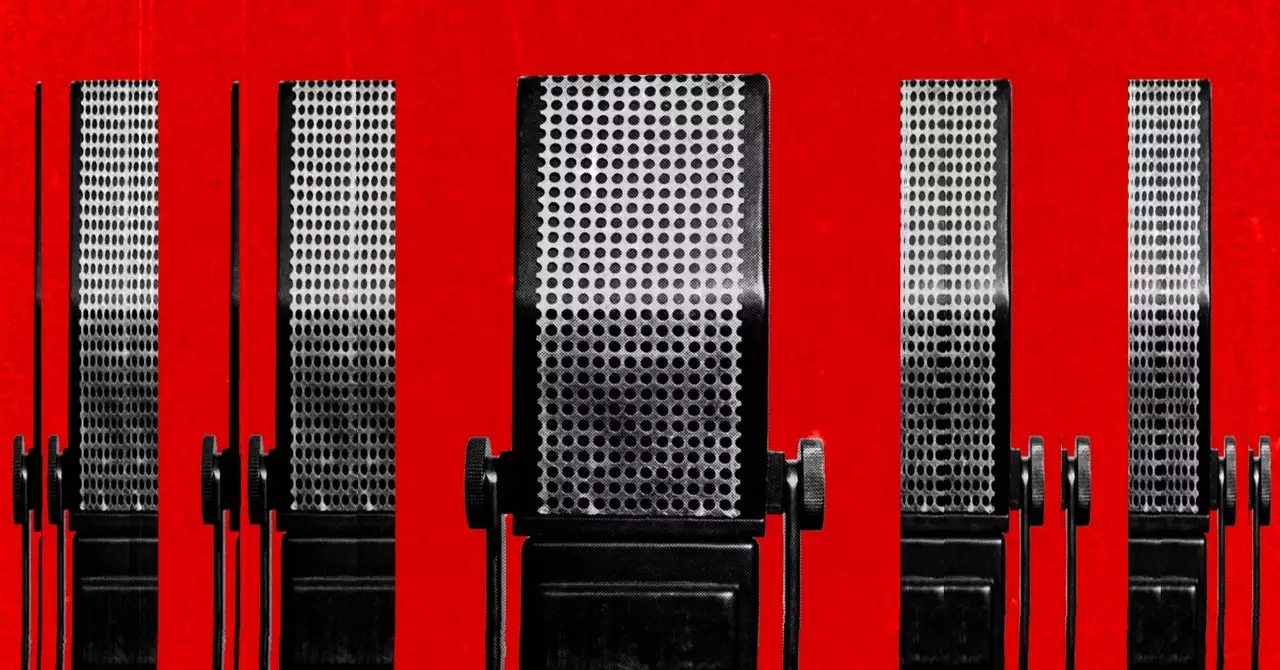Recent AI-altered video clips of Adolf Hitler’s 1939 Reichstag speech have been circulating on social media, causing a stir among viewers. The videos, which have garnered more than 15 million views, depict a translated version of Hitler’s speech, claiming the annihilation of the Jewish race in Europe. The origin of these videos and the implications they carry have raised concerns and sparked discussions online.
The Spread of AI-Altered Content
The two videos featuring AI-generated audio translations of Hitler’s speech were initially shared by a far-right conspiracy influencer named Dom Lucre on a social media platform. Despite Lucre’s disclaimer regarding the antisemitic nature of the videos, comments from viewers reflect a variety of interpretations and perspectives. From questioning the outcome of World War II to praising Hitler’s supposed patriotism, the response to these videos has been varied and contentious.
In addition to Dom Lucre, other controversial figures such as Owen Benjamin have commented on the AI-altered Hitler videos, perpetuating misinformation about the content. Benjamin’s erroneous claim that Hitler was chastising other countries for not helping the Jews in the videos has garnered millions of views, contributing to the spread of false narratives online. The lack of response from the platforms hosting these videos adds to the challenge of addressing and debunking the misinformation being disseminated.
The use of AI technology, particularly voice-cloning software from ElevenLabs, to create these altered videos raises ethical questions about the potential consequences of such advancements. The same technology that was employed to generate the AI Hitler videos was previously criticized for being used in creating an AI-generated robocall impersonating President Joe Biden. The implications of AI manipulation in spreading misinformation and distorting historical figures’ narratives underscore the need for enhanced oversight and regulation in the digital sphere.
Social Media Influence and Accountability
The role of social media platforms in amplifying and disseminating controversial content, such as the AI-generated Hitler videos, highlights the power and responsibility these platforms hold in shaping public discourse. The swift removal of the video from Instagram following its upload by Dom Lucre underscores the platform’s recognition of the need to address harmful content. However, the influence wielded by influential figures like Lucre in spreading conspiracy theories and misinformation poses a significant challenge to maintaining a healthy online environment.
The proliferation of AI-altered content, exemplified by the circulation of Hitler speech videos, underscores the complex intersection of technology, ethics, and accountability in the digital age. As social media continues to serve as a platform for sharing information and shaping public opinion, it becomes crucial to critically assess the content being disseminated and to hold both creators and platforms accountable for the impact of their actions. Only by fostering a culture of transparency, integrity, and responsibility can we navigate the challenges presented by the digital landscape and promote a more informed and constructive online discourse.


Leave a Reply